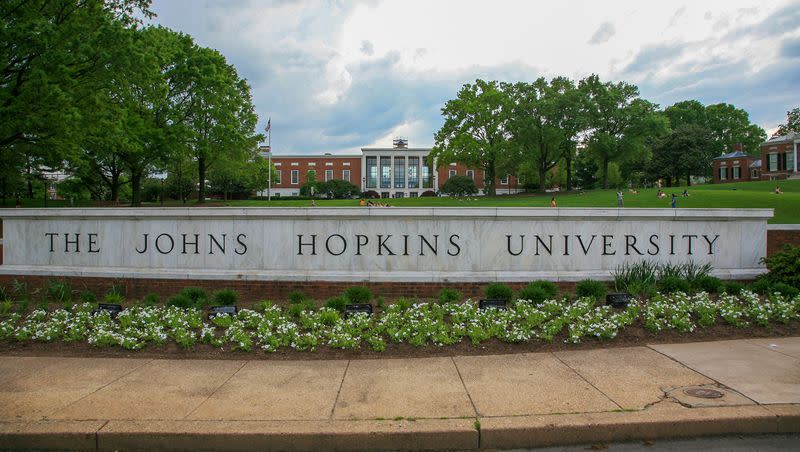A Johns Hopkins newsletter said English-speaking, middle-class Christians enjoy unearned privilege. The definition was quickly retracted

After outrage on social media, a diversity, inclusion and health equity office at Johns Hopkins University on Thursday retracted a definition of privilege that included English speakers, Christians, the middle aged and the middle class.
Johns Hopkins was trending on X Thursday as people circulated a post showing a portion of a “Monthly Diversity Digest” that listed “privilege” as the diversity word of the month.
Privilege was defined as “a set of unearned benefits given to people who are in a specific social group.” In the U.S., the post said, “privilege is granted to people who have membership in one or more of these social identity groups: white people, able-bodied people, heterosexuals, cisgender people, males, Christians, middle or owning class people, middle-aged people, English-speaking people.”
The post also said, “Privilege is characteristically invisible to people who have it.”
An X account called “End Wokeness” posted the excerpt on Wednesday afternoon; it gained even higher visibility when Elon Musk responded to it Thursday morning, saying, “This must end.”
This must end! https://t.co/TDo5Wi3qIm
— Elon Musk (@elonmusk) January 11, 2024
Two hours later, the “End Wokeness” account posted the image of an email from Dr. Sherita H. Golden, vice president and chief diversity officer of the John Hopkins Medicine Office of Diversity, Inclusion and Health Equity, expressing regret for the wording in the digest.
The language was “overly simplistic and poorly worded,” Golden said, adding, “I retract and disavow the definition I shared, and I am sorry. I will work to ensure that future messages better reflect our organizational values.”
A Johns Hopkins Medicine spokesperson confirmed to Deseret the authenticity of the reports, saying in an email, “The January edition of the monthly newsletter from the Johns Hopkins Medicine Office of Diversity, Inclusion and Health Equity used language that contradicts the values of Johns Hopkins as an institution. Dr. Sherita Golden, Johns Hopkins Medicine’s Chief Diversity Officer, has sincerely acknowledged this mistake and retracted the language used in the message.”
One observer on the social media platform X said that the school didn’t want to get “the Harvard treatment,” referring to the pressure put on Harvard University via social media that led to the resignation of former President Claudine Gay.

